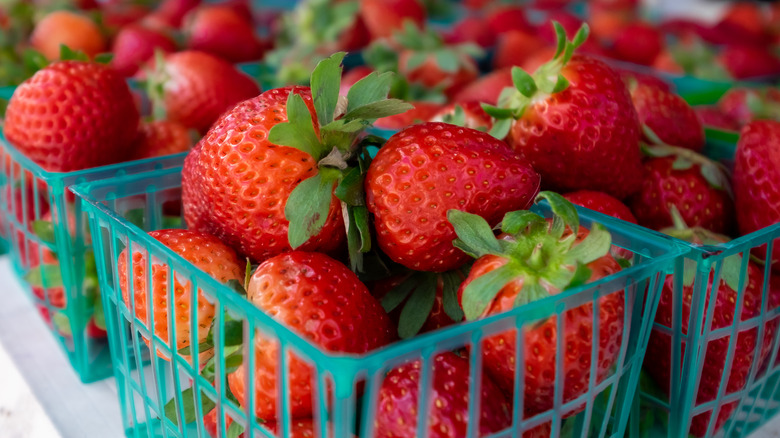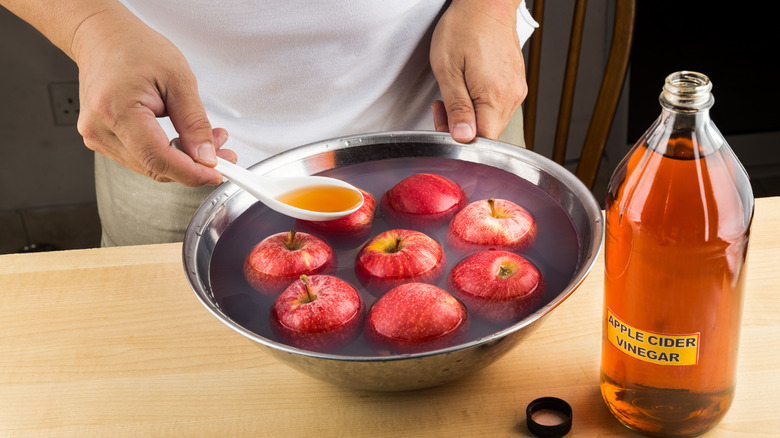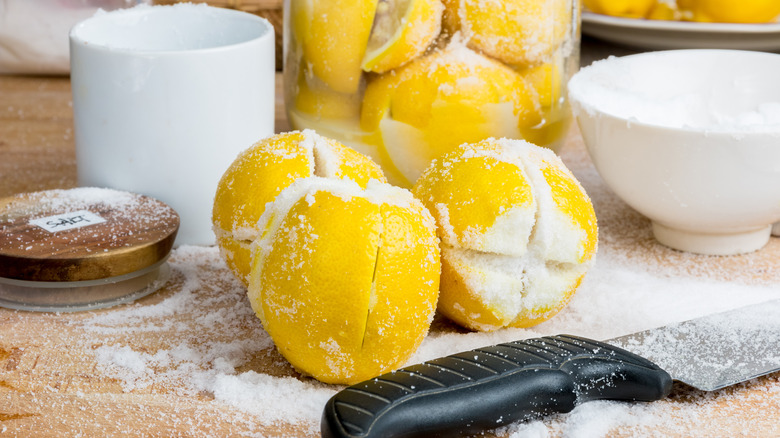Does Refrigerating Overripe Fruit With Vinegar Or Salt Help It Last Longer?
Eating fruit each day is a healthy habit that might even keep the doctor away, but sometimes when you buy fruit, whether from a grocery store or a farmers market, you might inadvertently buy something that's already too ripe or purchase more than you can eat before it becomes overripe. When this happens, you obviously want to avoid wasting food and tossing a bunch of moldy fruit in the garbage. Luckily, there are some tactics for preserving overripe fruit.
Many fruit aficionados tout the use of a vinegar solution to extend the life of overripe fruit, while another method that is often promoted to prevent spoilage is refrigerating overripe fruit with salt to prolong its shelf life. Both vinegar and salt can each be useful in helping fruit last longer because of their natural preservative properties that prevent it from going bad, but a combination of proper storage methods is the best approach to prolonging shelf life.
Vinegar's acidity helps prevent the growth of mold
Vinegar is an inexpensive and easy-to-find product that's long been used to preserve foods, so it's no wonder it can be used to help extend the life of your fruit, just maybe not in the way you think (there's no home canning involved). For this hack, you'll soak the fruit in a vinegar and water bath for between five and 10 minutes, then dry it on a bed of paper towels. When it comes time to store the fruit in the fridge, make sure it's fully dry and then place it in an airtight container lined with paper towels.
Research indicates that vinegar's acidity can prevent the growth of certain fungi (like some types of mold) on fruit and this can be done by using many types of vinegar but the most common for this application are white distilled vinegar and apple cider vinegar. By diluting your vinegar with water, you avoid a super acidic, vinegar taste on your fruit when it's time to eat it, while the paper towels help wick moisture away from the fruit, keeping it fresh.
Salt's preservative properties can slow spoilage
The method of applying salt to preserve something is nothing new. Historically, salt has been utilized as a preservative since the time of the ancient Egyptians. However, the advent of refrigeration reduced the need for salt as a way to curb spoilage. The notion here is that salt is a natural preservative that can retain fruit's freshness in the fridge for longer. Its dehydrating properties help reduce the amount of water in food, which can in turn decrease the amount of microbes that accelerate spoilage. Salt, particularly when applied in higher concentrations, can kill bacteria but research has shown that it doesn't always kill mold or even all bacteria. Plus you risk drying out your fruit too much or leaving it with an overly salty flavor, even after rinsing.
While using salt and vinegar to help preserve your fruit isn't totally unfounded, the best way to extend the life of most types of fruits these days is by simply storing them in the refrigerator in sealed containers rather than on the counter. This locks out moisture that can attract microbes and mitigate the speed at which ripening occurs.


